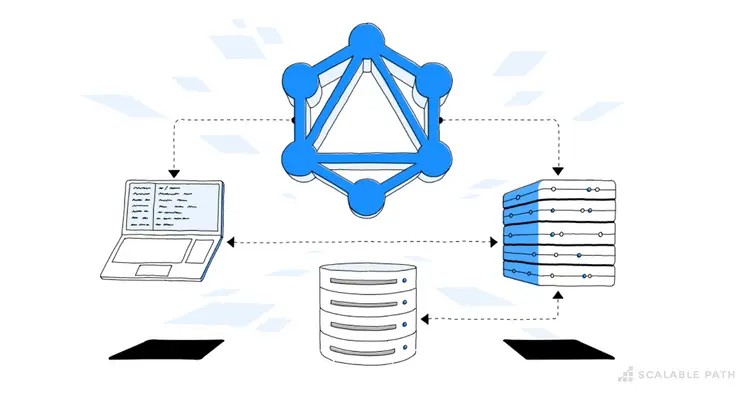Using Hasura to Build Instant GraphQL APIs for Full Stack Applications

In the evolving landscape of full stack development, the need for efficient, scalable, and developer-friendly tools is greater than ever. Hasura, a powerful open-source engine, is transforming the way developers build APIs by enabling instant creation of GraphQL APIs on top of existing databases. This capability allows developers to focus more on building features and less on boilerplate code. For aspiring developers, particularly those pursuing a full stack developer course or a full stack course in hyderabad, mastering Hasura can be a game-changer in modern application development.
What is Hasura?
Hasura is a GraphQL engine that sits on top of relational databases, such as PostgreSQL, and generates real-time, fully functional GraphQL APIs instantly. It abstracts away the complexities of building APIs, enabling developers to query and manipulate data effortlessly through a single endpoint.
Key Features of Hasura
- Instant GraphQL APIs: Automatically generate GraphQL APIs based on your database schema without writing custom code.
- Real-Time Capabilities: Built-in support for real-time queries using subscriptions.
- Authentication and Authorization: Easily implement role-based access control for APIs.
- Event Triggers: Automate workflows by triggering serverless functions or webhooks on database events.
- Flexible Integrations: Works seamlessly with popular front-end frameworks and tools.
These features make Hasura an indispensable tool for full stack developers, allowing them to simplify API development and focus on delivering robust applications.
Why Use Hasura in Full Stack Development?
Building full stack applications often involves creating APIs to connect the front-end and back-end. This process can be time-consuming and repetitive. Hasura eliminates this bottleneck by automating API creation, making it a valuable asset in full stack development.
Key benefits include:
- Faster Development: Save time by automating API generation and reduce boilerplate code.
- Scalability: Hasura’s real-time capabilities make it suitable for applications that require live updates, such as chat apps or dashboards.
- Flexibility: Its compatibility with multiple frameworks and databases allows developers to integrate it into any stack.
For students in a full stack developer course, learning to use Hasura provides an edge in developing scalable and efficient applications.
Setting Up Hasura for Your Full Stack Application
Getting started with Hasura is straightforward, even for beginners. Here’s a step-by-step guide to set up Hasura:
1. Install Hasura
Hasura can be deployed using Docker or Kubernetes. For local development, Docker is the easiest option:
bash
Copy code
docker run -d -p 8080:8080 hasura/graphql-engine
2. Connect Your Database
Hasura works seamlessly with PostgreSQL. Connect your database by providing the connection string in the Hasura console.
3. Auto-Generate GraphQL APIs
Once connected, Hasura automatically generates GraphQL APIs based on your database schema. You can access these APIs via the GraphQL endpoint.
4. Test Your APIs
Use the Hasura Console or tools like GraphiQL or Postman to test the generated APIs.
For students in a full stack course in hyderabad, gaining hands-on experience with Hasura setup is an integral part of mastering modern API development.
Use Cases for Hasura in Full Stack Applications
Hasura’s flexibility and efficiency make it suitable for a variety of applications:
- E-Commerce Platforms: Manage product catalogs, user profiles, and order histories with real-time updates.
- Social Media Applications: Implement features like real-time feeds, user notifications, and messaging.
- Data Dashboards: Build interactive dashboards with real-time data visualization.
- Collaborative Tools: Enable real-time collaboration in tools like shared documents or project management apps.
These use cases highlight Hasura’s versatility in full stack development, making it a valuable skill to learn in a full stack course in hyderabad.
Best Practices for Using Hasura
To maximize the benefits of Hasura, follow these best practices:
- Optimize Queries: Use only the required fields in GraphQL queries to minimize payload size and improve performance.
- Use Environment Variables: Store sensitive information, like database credentials, in environment variables.
- Leverage Caching: Use caching strategies to reduce the load on your database.
- Implement Role-Based Access Control: Define clear access rules to secure your APIs.
- Monitor and Debug: Use Hasura’s built-in logging and monitoring tools to debug and optimize your application.
These best practices are often emphasized in a full stack developer course, helping developers build scalable and secure applications.
Conclusion
Hasura is revolutionizing full stack development by enabling developers to build instant, scalable, and real-time GraphQL APIs. Its simplicity, flexibility, and powerful components make it a go-to tool for modern application development.
For aspiring professionals, especially those enrolled in a full stack developer course in hyderabad, learning Hasura equips them with the skills to deliver high-quality applications efficiently. By integrating Hasura into their workflows, developers can focus on building innovative features while ensuring seamless data management and scalability.
Contact Us:
Name: ExcelR Full Stack Developer Course in Hyderabad
Address: Unispace Building, 4th-floor Plot No.47 48,49, 2, Street Number 1, Patrika Nagar, Madhapur, Hyderabad, Telangana 500081.
Phone: 087924 83183




